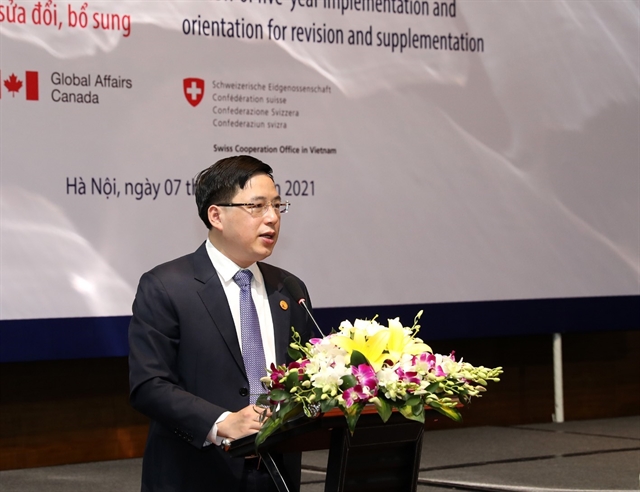
HÀ NỘI — The law on managing the use of State capital invested in an enterprise's manufacturing has revealed shortcomings, according to the Ministry of Finance (MoF).
Đặng Quyết Tiến, director of the Department of Corporate Finance from the MoF, told a workshop held between the ministry and the World Bank (WB) in Hà Nội on Wednesday that: “The Law No 69/2014/QH13 created a legal corridor for the investment of State capital in production and business in enterprises with incentive mechanisms and policies that have improved the country's investment, however, there are still shortcomings seen over the past five years.”
Tiến mentioned some problems, including different understandings on State investment in enterprises and a lack of clarity on the matter in related laws, which lead to difficulties in implementation.
“It is necessary to collect comments, analyse and propose amendments and supplements to the law to continue to improve policies accordingly," he said.
Proposing the content to be revised, PhD Lê Đăng Doanh said the new law should define the scope of the State's investment and the field of equitisation.
“Equitisation should be done carefully with strategic shareholders in the board of directors, improving corporate governance quality and solving land-related problems in equitisation," Doanh said.
“State-owned enterprises (SOEs) management needs to be reformed according to market principles," he added.
He said the State should still manage and supervise its capital but also avoid too much administrative intervention and human resource intervention in enterprises, adding there was a need for transparency in SOEs management according to international standards.
Nguyễn Thượng Lạng from the National Economics University suggested the revised law should comply with market principles where the capital investment efficiency of State shareholders must be evaluated based on the added value of invested capital and dividends and distributed profits annually.
Economic expert Nguyễn Đình Cung, former director of the Central Institute for Economic Management (CIEM), said: “In the amendment of regulations, it is necessary to clearly state the responsibilities, rights and powers related to corporate governance.”
Cung also said the evaluation of the efficiency of State capital investment activities in an enterprise must comply with market principles, based on the added value of investment capital and annual dividends and profits as they were the ways to evaluate the efficiency of capital investment of the State as a major shareholder.
Experts said the amended law needed to clarify the role of the agency representing the owner, all activities of the enterprise must be performed by the executive board, separating the management functions of the State owner and at the same time it is necessary to concretise the accountability of the head and apply modern governance according to international practices. — VNS